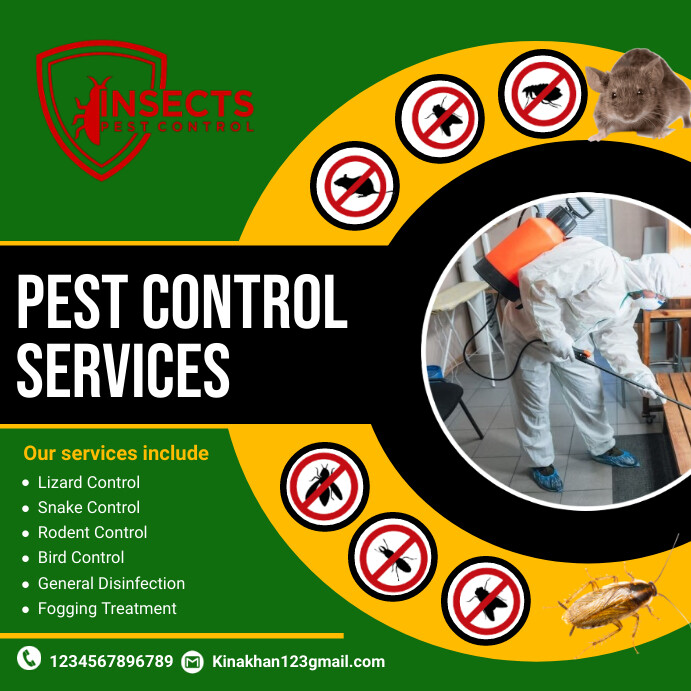Budget Friendly Pest Control Auckland Experts: Keep Your Building Safe
Budget Friendly Pest Control Auckland Experts: Keep Your Building Safe
Blog Article
Recognizing Various Kinds Of Pest Control Methods and Their Effectiveness
The management of parasites is a critical aspect of maintaining the wellness and stability of different atmospheres, from agricultural fields to household homes. When taking into consideration bug control techniques, it is necessary to understand the varied techniques readily available and their differing levels of effectiveness. From chemical treatments to biological solutions, each approach provides unique benefits and constraints. By discovering the nuances of these pest control methods, an extensive understanding of how to resolve insect issues can be established.
Chemical Parasite Control Methods
Chemical bug control methods play an essential role in efficiently taking care of and getting rid of pest infestations in different settings. These methods entail the use of chemical materials to remove or deter pests such as weeds, insects, and rodents. One of the crucial benefits of chemical pest control is its capacity to supply quick and targeted options to pest troubles. By utilizing particular chemicals that are created to target certain parasites, this approach can assist protect against damage to crops, frameworks, and human health.
Nonetheless, it is necessary to think about the potential risks and drawbacks associated with chemical pest control methods. Overreliance on chemicals can result in the advancement of pesticide resistance in pests, making them tougher to regulate in the lengthy run. In addition, making use of specific chemicals can have hazardous effects on non-target organisms, the environment, and human health otherwise used appropriately.
Organic Pest Control Methods
Making use of all-natural predators and microorganisms to handle pest populations successfully, biological parasite control techniques provide a environment-friendly and sustainable strategy to pest administration. By presenting or promoting the activity of organisms that normally take advantage of or infect parasites, such as ladybugs for aphid control or particular bacteria for caterpillar invasions, organic control can aid maintain insect populaces at workable levels without the requirement for artificial chemicals. This approach is particularly useful for organic farming techniques, as it avoids making use of potentially damaging materials while maintaining crop health.

Physical Insect Control Techniques
While biological insect control techniques concentrate on utilizing natural predators and pathogens, physical pest control approaches make use of mechanical and physical barriers to manage parasite populaces. These techniques are commonly thought about ecologically friendly as they minimize making use of chemicals. Physical insect control includes strategies such as trapping, using barriers like displays or internet, and literally removing parasites from the location.
Traps are generally used in physical insect control to catch and eliminate bugs like rats and pests. An additional physical approach is the usage of obstacles such as fencings, displays, or webs Continued to avoid parasites from getting in or infesting particular locations.
All-natural Bug Control Methods
Incorporating plant-based repellents and natural predators is an essential method in carrying out effective natural pest control methods. By motivating the existence of beneficial insects like ladybugs, lacewings, or aggressive mites, gardeners can naturally manage pest populations. These predators feed on typical yard pests such as aphids, termites, and caterpillars, aiding to keep a well balanced environment without the requirement for chemical interventions.

Furthermore, applying social methods such as crop turning, companion growing, and keeping correct plant health can additionally improve the effectiveness of all-natural bug control methods. These strategies not only aid in stopping bug infestations yet also advertise biodiversity and overall ecological community durability. By integrating these all-natural approaches, individuals can properly handle insects while lessening environmental effect.
Integrated Parasite Management (IPM) Approach
Carrying Out an Integrated Insect Monitoring (IPM) approach is necessary for effectively controlling bug populaces while reducing reliance on chemical pesticides. IPM is a sustainable and thorough technique that integrates numerous parasite control methods to attain lasting solutions. This method concentrates on prevention, control, and tracking to address insect concerns in an eco-friendly manner.
IPM integrates biological, cultural, physical, and mechanical techniques with the restricted and tactical use of pesticides when required. By stressing positive procedures such as habitat adjustment, biological control, and exclusion, IPM aims to decrease insect populations and their impact on the community. Normal tracking is vital in IPM to analyze bug degrees accurately and identify one of the most proper control techniques.
One of the essential advantages of IPM is its capability to reduce the dangers connected with extreme pesticide usage, such as ecological contamination and harm to non-target organisms. Additionally, IPM advertises a much more holistic approach to pest administration by thinking about the overall ecosystem characteristics. Generally, the IPM method offers a effective and sustainable solution for pest control while advertising ecological responsibility.
Verdict
In final thought, recognizing the different types of insect control techniques and their performance is essential in successfully taking care of parasite infestations. Integrated Insect Administration (IPM) strategy, which incorporates various techniques for sustainable pest control, is progressively being acknowledged as a eco pleasant and all natural solution.
Chemical pest control methods play a crucial role in effectively taking care of and removing pest invasions in different atmospheres.Making use of natural predators and pathogens to manage pest populations properly, organic bug control approaches use visite site a environment-friendly and sustainable method to pest management. By promoting the task or presenting of organisms that normally prey on or contaminate pests, such as ladybugs for aphid control or certain microorganisms for caterpillar invasions, biological control can help keep pest populations at manageable levels without the need for artificial chemicals.While organic parasite control approaches concentrate on Find Out More utilizing all-natural killers and pathogens, physical bug control techniques utilize physical and mechanical obstacles to manage parasite populations. Integrated Parasite Administration (IPM) method, which incorporates different methods for sustainable parasite control, is progressively being recognized as a ecologically friendly and holistic service.
Report this page